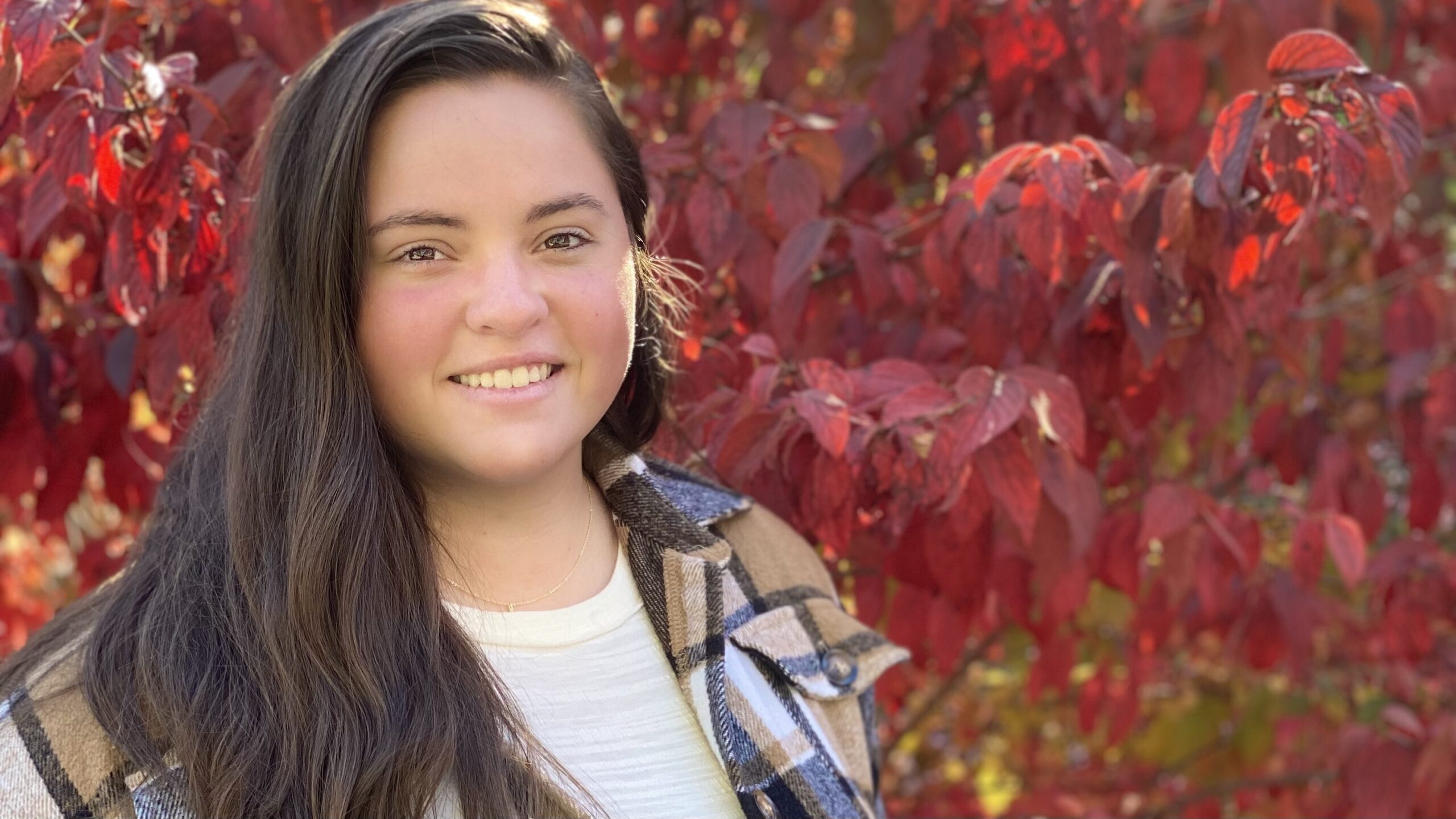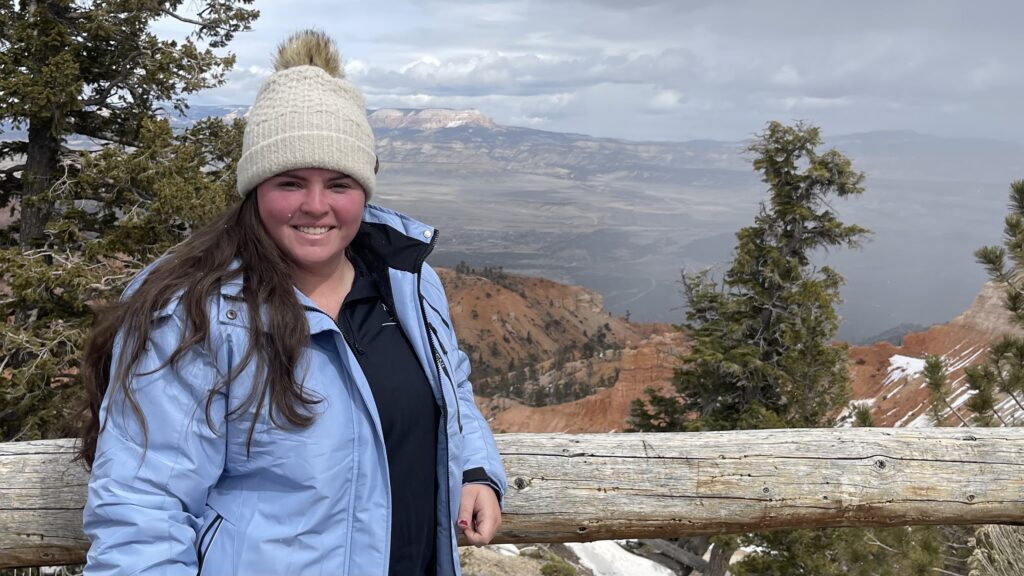Researcher Spotlight – Samantha Michlowitz

2022-23 Global Change Fellow
MS student, Department of Marine, Earth, and Atmospheric Sciences (MEAS)
Advisor: Dr. Sarah Larson
Every year the Southeast Climate Adaptation Science Center funds a multi-disciplinary cohort of Global Change Fellows representing colleges across NC State University. Here are some highlights about 2022-23 Fellow, Samantha Michlowitz and the applied research she’s conducting.
About You
What do you study?
I study meteorology, where I have done extensive research with sea breezes on the Gulf Coast, tornadoes on the Gulf Coast, cold wakes of hurricanes and the impacts it has on RI, as well as climate impacts on hurricanes in the Atlantic Ocean.
Who influenced you to go into this field of study?
My Dad helped influence me to go into the field of meteorology. My father taught me at a very young age an important quote, “If you love what you do, you will never work a day in your life.” I worked so hard to find what I love to do, so I would never call what I do work. I was lucky to have found it. When I learn more about how the atmosphere evolves, my passion grows even more. Thank you Dad for always encouraging me to do my best and never settle for less.
What is your dream job?
My dream job is to work for the National Weather Service as a forecaster and work my way to a Warning Coordination Meteorologist. In this role, you work directly with the local people, governments, and organizations to educate them on weather and climate, as well as, learn ways to better give them weather safety information. I would love to work directly with people and for people.
About Your Research

What results are you finding?
My research is using two climate model experiments to identify the makeup of the external trends related to tropical cyclones. The two model experiments allow us to separate the external trends due to buoyancy forcing, and the external effects due to the ocean redistribution of heat. What I am finding is that the buoyancy forcing is stronger than the ocean circulation changes, and the two forces combat one another. With this research, I have found that the environment for hurricane development is becoming more conducive to formation over time.
Who will benefit from your research?
Many different entities may benefit from the research that I am performing. One group is the climate scientists. Climate scientists will have more knowledge on the two model experiments used in this study, as well as, the impacts of the ocean dynamics and the forced impact on the atmosphere. Another group that might be interested are those studying hurricanes in the Atlantic. We are seeing a more conducive environment for hurricane development over time, so we should be able to expect more storms to form. And finally, the citizens living in coastal areas will be interested to know that storms may become more frequent, which will cause more impacts to their life and property.
How would you describe your research to a 3rd grader?
I would describe my research to a 3rd grader by using many pictures of hurricanes. I would then also show the different ingredients that help hurricanes to form. And then I would show how the different ingredients are changing with time. If they are increasing, we can assume more hurricanes will happen over time.
About Your Global Change Fellow Experience
How do you expect the SE CASC Global Change Fellows Program to impact you and your work?
The SE CASC Global Change Fellows Program will impact my career. I have already learned so much about climate change, climate adaptation strategies, and how these concerns impact various community organizations. Going into my career, I will ensure that all people are heard, their weather and climate concerns are addressed, and we can get them educational information in the best avenue possible. This program has ignited a different fire to carry into my career.
What has been the most rewarding part or your favorite part of being a SE CASC Global Change Fellow?
The most rewarding part of being a part of this program is the networking opportunities with various local and federal government agencies, academic faculty, and local communities to learn of the various climate concerns, how they are being addressed, and what we can do to make this interaction better. This program works hard to ensure all of these entities can sit at the same table.
What advice would you give to a student that is interested in getting involved in your field?
To someone who wants to get involved in meteorology, I would advise them to find what topic in this field that interests them and drives their passion. Once you find this topic, you can make a huge difference in the world.